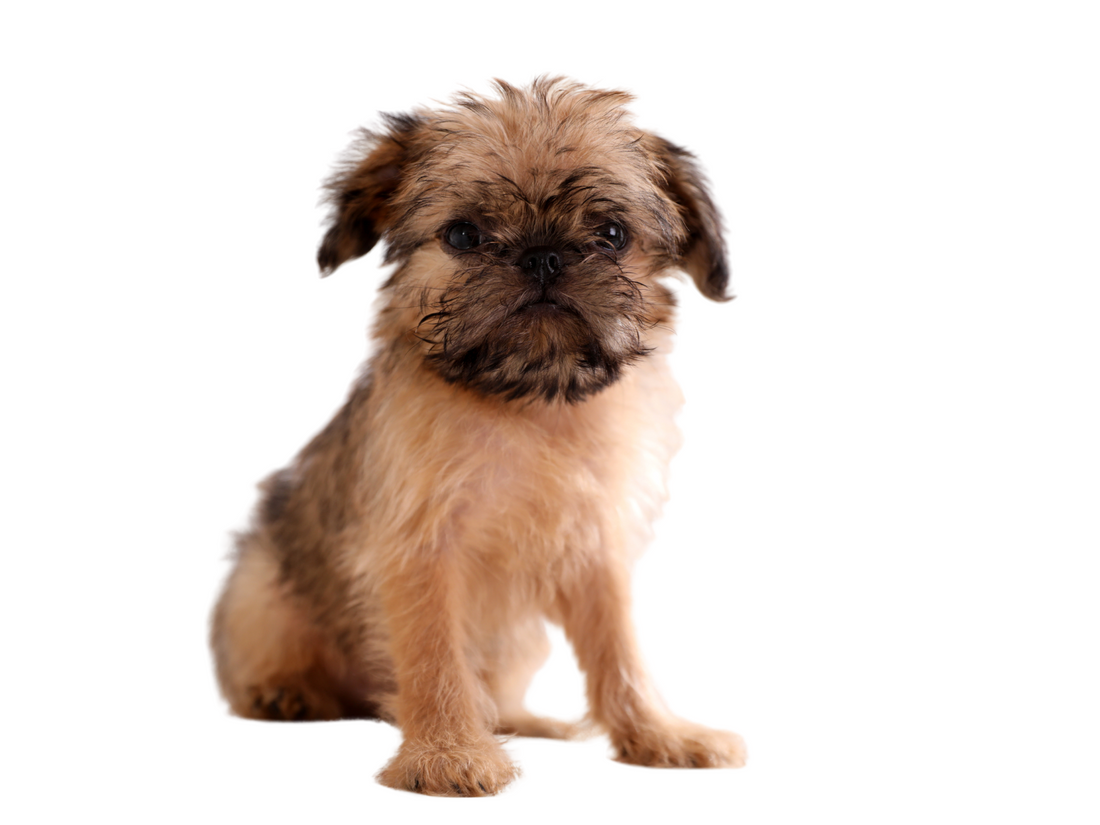
Brussels Griffon
Share
The Brussels Griffon is a small, charming breed known for its expressive face and affectionate personality. Originating in Belgium, these dogs were initially bred for hunting and ratting, but today they are cherished as delightful companion pets. With their unique appearance and lively demeanor, Brussels Griffons make wonderful additions to any family.
Brussels Griffons are small dogs with a distinctive “monkey face,” characterized by their large, round eyes, short nose, and prominent chin. They come in two coat types: rough and smooth. The rough-coated variety has a wiry, dense coat, while the smooth-coated variety has a short, glossy coat. Their coat colors include red, black, black and tan, and belge (a mix of black and reddish-brown).
One of the most notable traits of the Brussels Griffon is its affectionate and loyal nature. They form strong bonds with their families and thrive on companionship. These dogs love to be involved in daily activities and enjoy spending time with their owners. They are known for their playful and sometimes mischievous behavior, which adds to their charm.
Despite their small size, Brussels Griffons are active and energetic dogs that require regular exercise. Daily walks, playtime, and mental stimulation are essential to keep them happy and healthy. They enjoy activities such as fetch, agility training, and interactive toys that challenge their minds. A well-exercised Brussels Griffon is a content and well-behaved companion.
Training a Brussels Griffon requires patience and consistency. They are intelligent but can be independent and sometimes stubborn. Positive reinforcement methods work best, as Brussels Griffons respond well to praise and rewards. Early socialization and obedience training are crucial to ensure they develop into well-behaved adults. Consistent training helps channel their energy and enthusiasm into positive behaviors.
Grooming a Brussels Griffon depends on the coat type. Rough-coated Griffons require regular brushing to prevent mats and tangles, while smooth-coated Griffons need less frequent brushing. Both types benefit from regular dental care, ear cleaning, and nail trimming. Bathing should be done as needed, typically every few months or when they get particularly dirty.
Brussels Griffons are generally healthy dogs, but like all breeds, they can be prone to certain health issues. Common concerns include hip dysplasia, patellar luxation, and respiratory problems due to their short noses. Regular veterinary check-ups and a balanced diet can help manage these conditions and ensure a long, healthy life for your Brussels Griffon.
Feeding your Brussels Griffon a high-quality diet is essential to support their active lifestyle. Whether you choose commercial dog food or homemade meals, ensure it is nutritionally balanced and meets their specific needs. Consulting with a veterinarian can help you determine the best diet plan for your dog, taking into account their age, weight, and activity level.
Brussels Griffons are known for their sociable and affectionate nature. They enjoy spending time with their families and are often described as “velcro dogs” due to their tendency to stick close to their owners. Their playful and lively demeanor makes them great pets for families with children, as they enjoy the attention and interaction.
In conclusion, the Brussels Griffon is a delightful breed known for its expressive face and affectionate personality. They make excellent companion pets and thrive in households where they can be part of the action. With proper training, socialization, and care, a Brussels Griffon can be a loving and loyal addition to your family, bringing joy and companionship for many years.